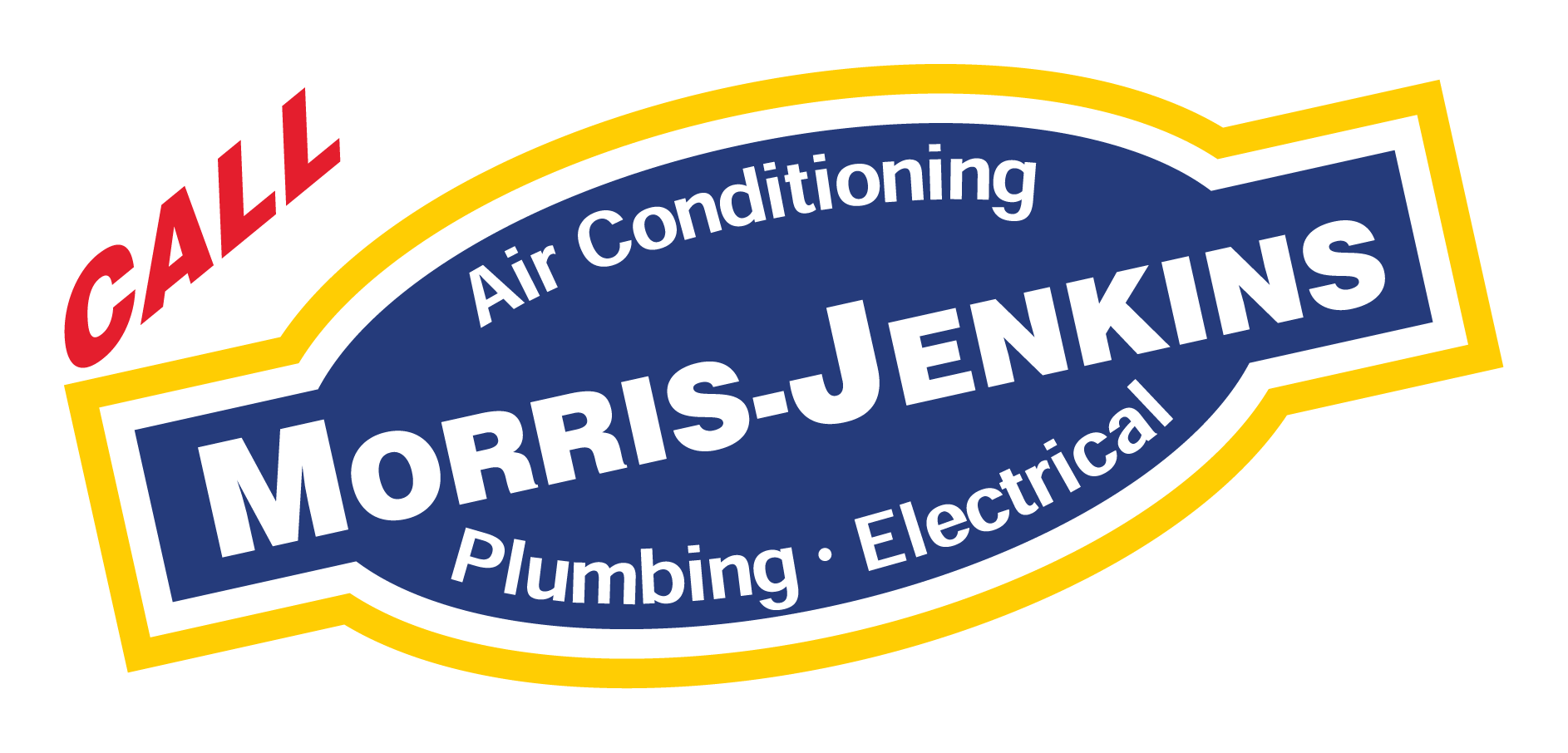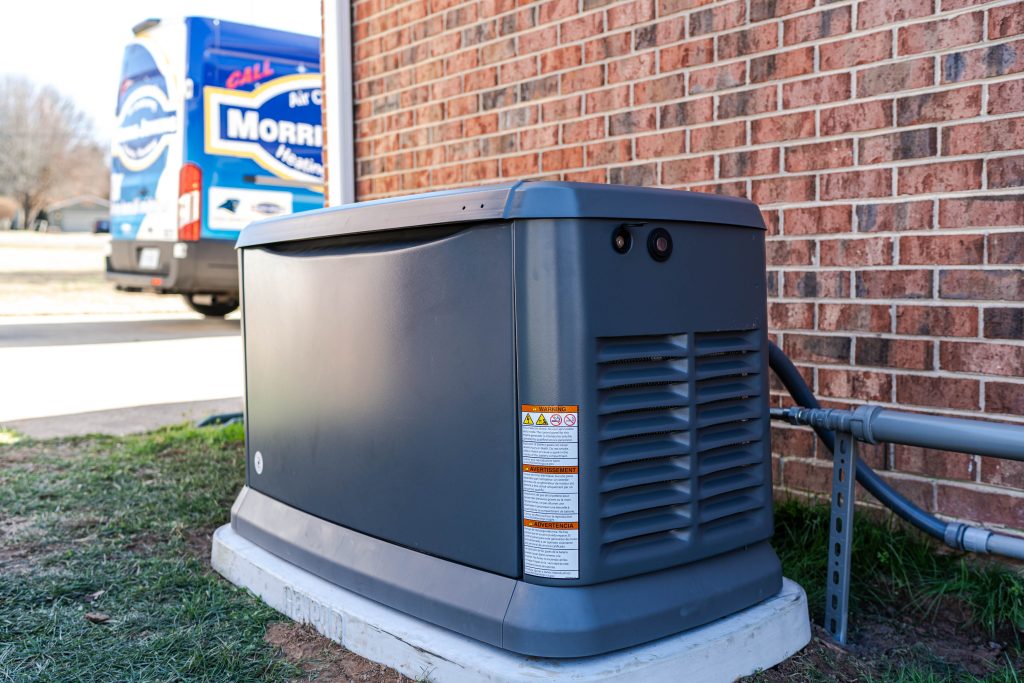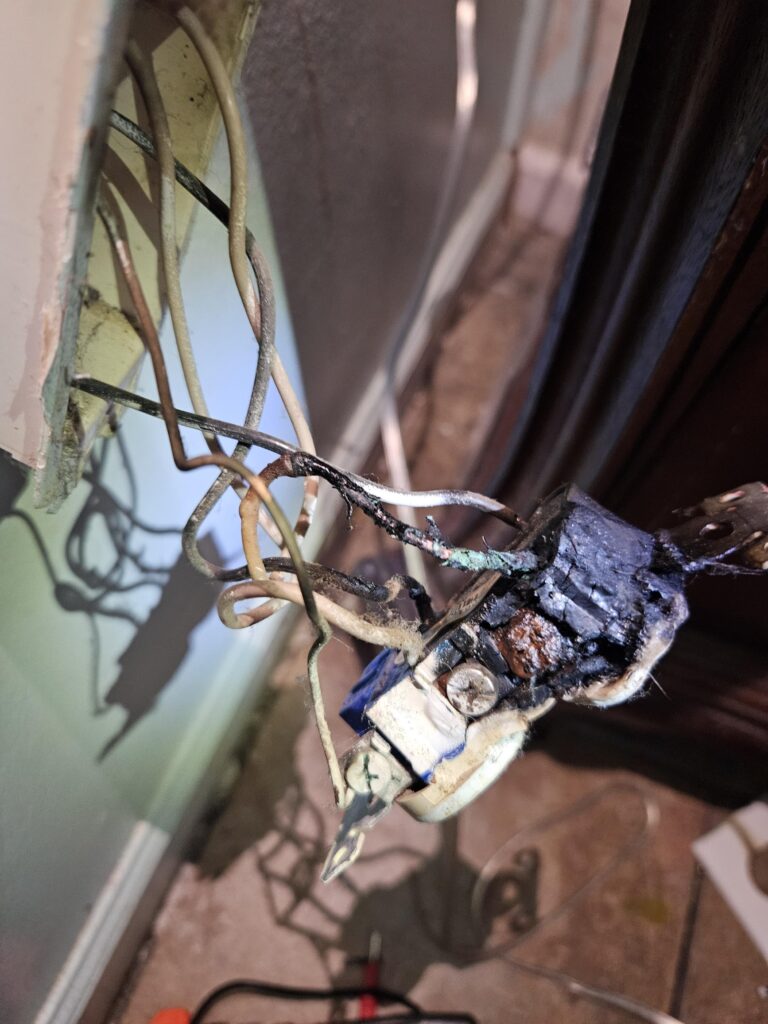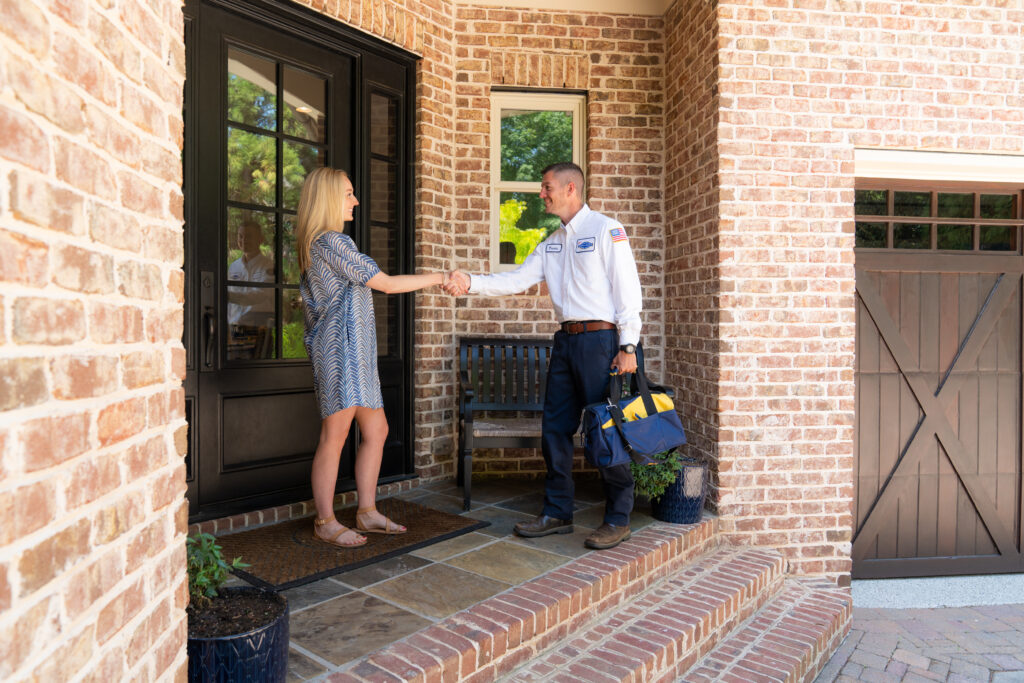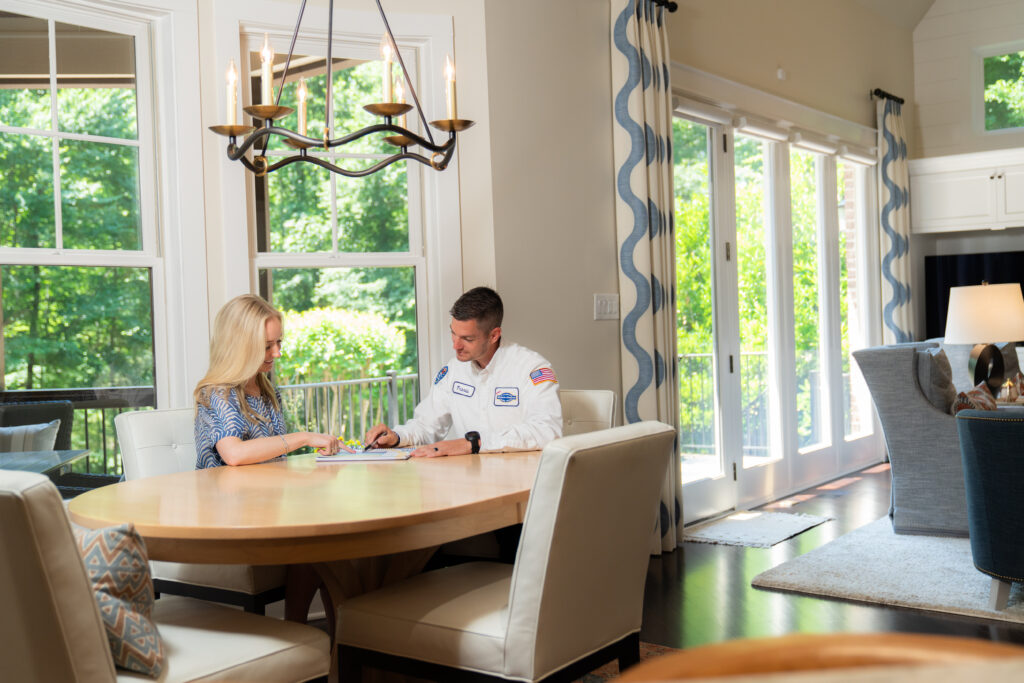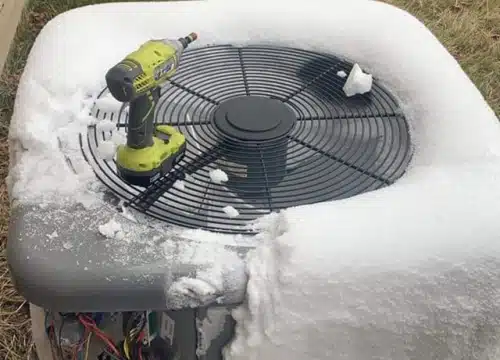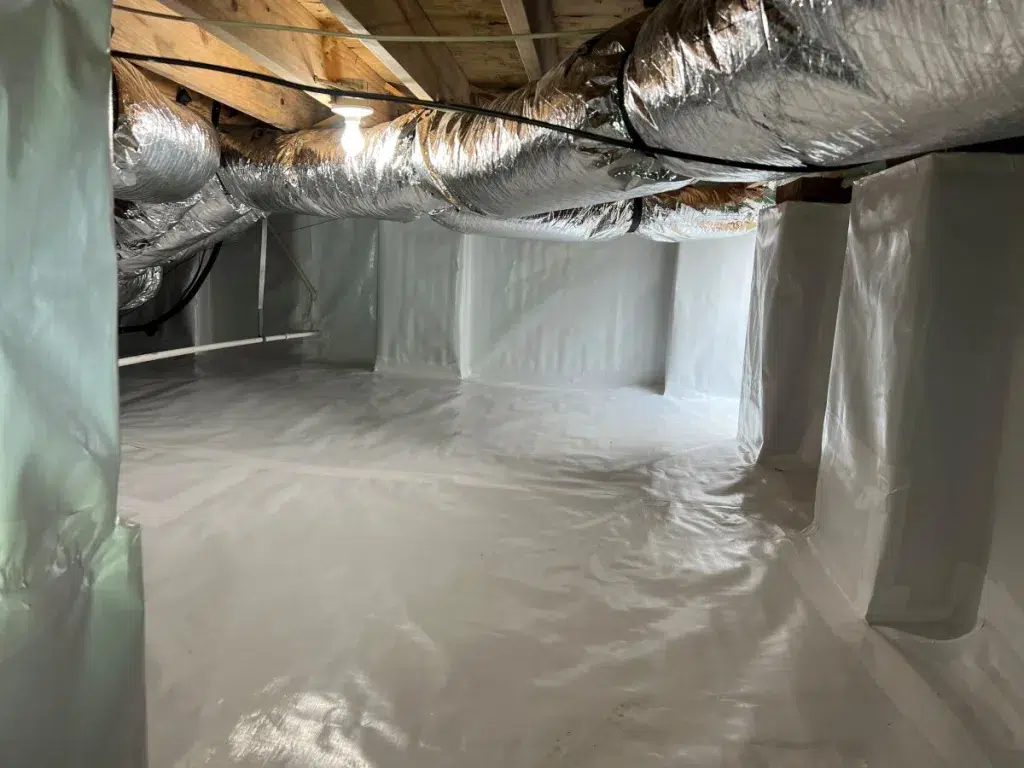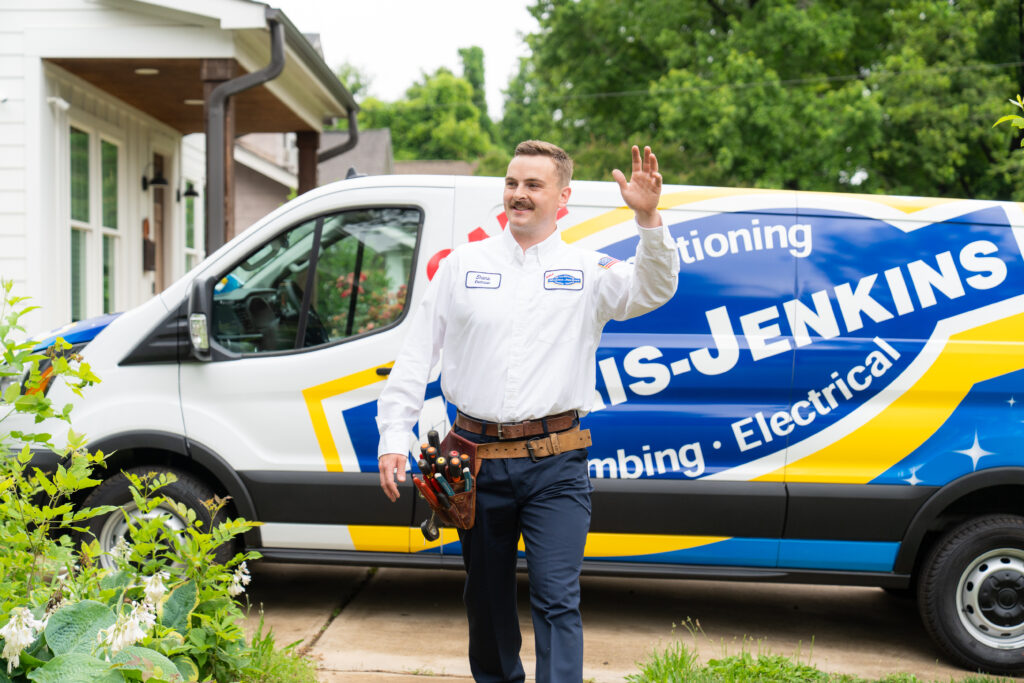When your power goes out, it’s not just simple things like lights and the TV that stop working. Your heating and cooling system, your fridge, your Wi-Fi, and some critical medical devices can all stop working. This doesn’t just affect your comfort; your safety can be at stake too!
That’s where standby whole home generators come into play. They automatically kick on when the power goes out and keep your home running like normal. But to do that, you need the right size generator—one that can handle all the stuff you count on every day without overloading or shutting down.
What Size Generator Do I Need to Run My House?
The more appliances and systems you’re looking to run while the power is out, the bigger the generator you’ll need. If you just want to keep the lights on and the fridge cold, you can get away with a smaller system—but if you want to power everything, including your AC, oven, and washer, you’ll need a whole home generator with enough juice to handle it all.
Finding the Right Generator For Your Home
Load calculations are a great way to determine how much energy you use to power the most important systems and appliances in your home. We’re talking about things like your air conditioner, furnace, refrigerator, lights, and maybe even medical equipment or a home office setup.
By figuring out how much electricity each of those things needs, we can size your generator just right—so it’s powerful enough to keep your essentials running without going overboard. You don’t want a system that’s too small and trips every time your AC kicks on, but you also don’t want to pay for more power than you’ll ever use.
At Morris-Jenkins, we can help you find that sweet spot. Whether you’re looking for power for just the essentials or or want your whole house running like nothing ever happened, we’ll make sure you get the right size generator for your needs!
What’s the Difference Between Standby Generators and Portable Generators?
Standby home generators aren’t your standard generators. Often, when someone says the word, “generator,” people think of the kind you get at the hardware store that you’ve gotta fill with gas and crank up. Portable generators like these can be great in a pinch, but when it comes to powering your entire house, they just can’t keep up.
Standby home generators do things a little differently. These are personal power plants that can power up your entire home. Not only that, but you can’t install these yourself. Whole home generators take multiple trades to install. They’re complicated, and you’ll need plumbers and HVAC technicians working together to get everything hooked up right. Generators are wired directly into your home’s electrical panel and must connect to your natural gas line or propane tank so they can kick on when needed.
Your Home For Whole Home Generator Services In Charlotte!
We’ve got all of these trades under one roof at Morris-Jenkins, so we’re your one-stop shop for anything related to standby home generators! Looking to install a whole home generator in the Charlotte area? Give us a call!
How Installing a Whole Home Generator Can Help
You never know when your power is gonna go out next. Get your home and family ready for even the nastiest storms with a standby whole home generator! With a personal power plant, you can:
Keep Your Heating and Cooling System Running
The hot summer days and cold summer nights require working HVAC systems, but when the power goes out, you might get left without the comfort they provide.
Power Your Electronic Medical Devices
If someone in your home relies on powered medical equipment, a standby generator can help make sure those devices stay on when you need them most.
Keep the Lights On in Your Home
No more fumbling for flashlights or lighting candles—a generator keeps every room bright and functional, just like normal.
Prevent the Food in your Fridge or Freezer From Spoiling
Food can stay safe in your fridge and freezer for a while, but if the power is out for an extended period of time and you don’t have backup power, things can begin to spoil.
Keep Your Basement From Flooding
Sump pumps remove flood water from basements, but they require electricity. Without a generator, a power outage could lead to flooding in your basement!
Maintain Access to Water
Homes that rely on well water use an electronic pump to provide water to their fixtures. If the power goes out, homes on well water lose access to water!
Where Does My Generator Need to Be Installed?
A lot of people assume generators should be installed in a garage or butted up against your house. If you’re hoping to install a standby generator in your garage, we’ve got bad news—that’s not safe! A lot of people assume (or hope) to put the generator in their garage, but standby generators produce a lot of carbon monoxide (CO). CO is a deadly gas, and you definitely don’t want to trap that in your garage!
Generator Installation Requirements
Generator placement requirements are pretty simple—we can’t install a standby generator within six feet of your windows, doors, crawl vents, electrical components, etc. Basically, we’ll install your generator about six feet away from any openings to your house. This is to keep your family safe from all the CO it produces! In some municipalities, the generator placement requirements are a bit more extreme. Depending on where you live, the standard might be six feet away from your property lines instead.
What Else Should You Know About Installing a Whole Home Generator?
At Morris-Jenkins, we want you to be as prepared as possible for your new whole house generator! It’s always a great idea to take steps toward protecting your home, and with a generator in place, you can rest assured that you’ll never be left without the power you need to run essential appliances, devices, and equipment. Here are some other things you might wanna know about:
Fuel Supply
Standby generators run on natural gas or propane, so if your home doesn’t already have a gas line or a large propane tank, that’s something we’ll need to plan for. And if you go with propane, you’ll need regular fuel deliveries to keep your system ready for action.
Noise
Another thing to keep in mind is noise. Generators can be a little loud when they’re running, so we’ll help you find a location that’s not too close to bedrooms or neighbors, while still meeting all the local codes.
Maintenance
Lastly, it’s a good idea to schedule regular maintenance once your generator’s installed. Just like your HVAC system and plumbing equipment, it’ll run better and last longer if you give it a little TLC now and then—and of course, Morris-Jenkins can help with that, too.
Choose Morris-Jenkins for Whole House Generator Installation in the Charlotte Area!
If you’re ready to install a standby generator for your home, give us a call, text us, or message us online! We’ll send one of our experts out to get an idea on what you want out of your generator, and then we’ll figure out exactly what size generator you need, where specifically we would put it based on generator placement requirements, and then we can get you some options! The process is easy, and you’ll have us there beside you the whole time to answer any questions.
Looking for whole home standby generator installation in the Charlotte area? Let Morris-Jenkins help you stay prepared for the next time a power outage strikes.
